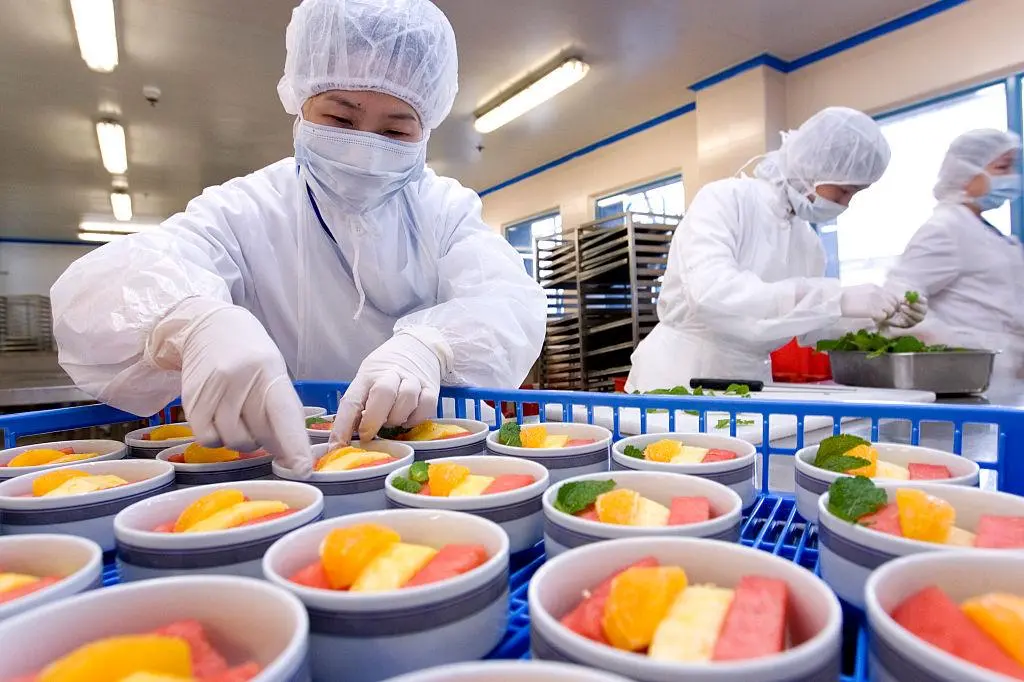PHOTO
Cloud kitchens were a key concept in 2020, when consumers turned increasingly to home delivery to slake their appetite for restaurant-cooked food while stay-at-home orders were in force. As consumer sentiment about dining in restaurants dropped, investor interest in cloud kitchens grew, and since restrictions were lifted, it has become clear that dining habits have changed permanently in their favour.
Players in the GCC include Kitopi, KLC Virtual Restaurants, kaykroo and Sweetheart Kitchen, which together account for delivery of 400 brands and counting. The year 2022 will see further expansion across the GCC, including the largest market by population and geographical area: Saudi Arabia.
KEY PLAYERS
All four companies are already present in two or more GCC states. Founded in Dubai in 2018, Kitopi partners with existing brands such as Papa John’s and Jollibee and invests in brands such as Right Bite and Ichiban. It achieved a $415 million funding round earlier this year and has 75 kitchens across Bahrain, the UAE, Kuwait, Saudi Arabia, with Qatar next on its radar.
KLC Virtual Restaurants, Kuwait’s first cloud-kitchen operator, has expanded into the UAE, where it has a strategic partnership with Kitopi in Dubai. The company operates 21 kitchens and is aiming to form more partnerships across the GCC. It has 50 brands and is aiming for 100 by the end of 2022. It plans to open 10 kitchens in Saudi within three years, with Bahrain and Qatar to follow.
UAE-grown brands kaykroo and Sweetheart Kitchen also have big Saudi plans for 2022: kaykroo has 19 UAE kitchens and will open 15 across Saudi Arabia in 2022, while Sweetheart has 16 kitchens in the UAE and Kuwait. It aims to open 30 in Saudi Arabia by end of 2022.
THE SAUDI MARKET
KLC, privately backed by founders CEO Mubarak Nabil Jaffar and Chairman Nabil Khalid Jaffar, says the Saudi cloud kitchen market is in a different place than that of Kuwait.
“KSA and Riyadh specifically are much bigger in size, population and numbers of orders than Kuwait,” Jaffar said. “The online food delivery market is growing significantly across KSA, while Kuwait, one of the leading food delivery markets in the GCC region, is at a more mature state in terms of growth.”
“In Kuwait, Talabat is the leading aggregator, whereas in KSA the online food delivery market has several key players,” he added. “Online food delivery has grown significantly during the last three years in KSA, with potential to grow even further.”
Sweetheart Kitchen, which raised $17.7 million in Series C funding in October 2020, will open its first 15 Saudi kitchens in the capital in H1 2022 and the rest in the eastern region in H2.
“Saudi Arabia is a large market, with a growing food delivery market and a large population, so we expect the demand to follow suit with the Kuwait market,” said Adib Samara, lead, global brand marketing at Sweetheart Kitchen.
He added: “We always believe in localisation and understanding whether or not there is the right product market fit for our consumers. We also engage consumer panels to better understand whether or not a product or brand will work in one market versus another. The beautiful thing within our model and owning our own brands is the ability to test new concepts in specific locations and then fast track them across our network should we believe they have merit.”
After having raised $24.4 million thus far, kaykroo has set its sights on a further $15 million from institutional investors for its Series A round. For Fawaz Al Otaibi, CEO and co-founder of kaykroo Saudi Arabia, the importance of the kingdom to the company lies not just in its size but in its youthful population and fast-changing lifestyle, which he says are game-changers for delivery-based business models.
Al Otaibi also noted that when it comes to ease of doing business in the kingdom, the processes for applying for permits have matured in recent years and become more efficient. “That has helped to lower barriers to entry and made it much quicker to get our operations up and running,” he said.
The launch of kaykroo’s first Saudi-specific brand, which will add to its existing 17 brands, including Bak Bak Chicken and The Good Bowl, is expected soon.
Kitopi, which was founded in Dubai, scooped up $415 million in a funding round led by Softbank’s Vision Fund 2 in July, giving it unicorn status. Already present in four GCC states, with a fifth, Qatar, coming soon, it is the most obvious candidate to expand beyond the region next year, although operations in London were launched prior to the pandemic only to be suspended to protect the wellbeing of employees, according to the company.
CFO of Kitopi, Sami Bejjani is wary of a “one size fits all” approach. “In the UAE, for example, delivery is huge, while in London, people like walking out to get lunch for less than £6 (AED 29.4),” he said.
“In the US, on the other hand, the drive-through is still very prevalent despite the growth in food delivery,” he continued. “The key (and success) for businesses in this space is to get food to consumers the way they want it, and there is no one-size-fits-all solution. Instead, it’s about repackaging and repositioning the offering to the consumer in ways that suits them best.”
(Reporting by Imogen Lillywhite; editing by Seban Scaria)
(imogen.lillywhite@refinitiv.com)
Disclaimer: This article is provided for informational purposes only. The content does not provide tax, legal or investment advice or opinion regarding the suitability, value or profitability of any particular security, portfolio or investment strategy. Read our full disclaimer policy here.
© ZAWYA 2021





















